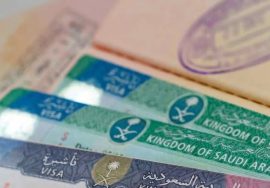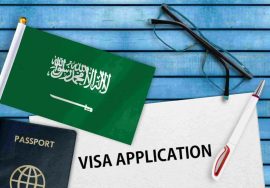
What Are General Requirements for Foreigners to Work in Saudi Arabia?
Saudi Arabia, as one of the largest economies in the Middle East, offers lucrative opportunities for expatriates seeking employment. However, the process of working in the Kingdom requires adherence to specific requirements and procedures. This guide outlines the prerequisites, the necessity of family considerations, and the steps to obtaining a work permit in Saudi Arabia.
General Requirements for Foreigners to Work in Saudi Arabia
To secure Employment in Saudi Arabia, foreign workers must meet several criteria:
1. A Valid Job Offer
Expatriates must have a confirmed job offer from a Saudi employer. The employer acts as the sponsor throughout the visa process.
Employers issue job contracts detailing the terms of employment, including salary, work hours, and benefits.
2. Qualifications and Skills
A candidate’s educational qualifications and professional experience must align with the requirements of the job.
Certain professions may require attested degrees or certifications recognized by Saudi authorities.
3. Valid Passport
Workers need a passport with at least six months of remaining validity to be eligible for visa processing.
4. Health Clearance
A medical examination is mandatory. This includes tests for communicable diseases and general health fitness.
5. Work Visa
A Saudi work visa is essential for legal employment. It is sponsored and processed by the hiring company.
Is Marriage and Having a Family Necessary?
No, marriage or having a family is not a prerequisite for working in Saudi Arabia. Both single and married individuals can work in the Kingdom without restrictions. However, certain considerations arise if you wish to bring your family:
Family Visa: If you intend to bring dependents (spouse and children), a family visa is required.
Financial Stability: The sponsoring employer typically requires proof of financial stability to issue dependent visas.
Restrictions: While family members can live in Saudi Arabia, dependents cannot engage in work unless they secure their own work permits.
For single workers, life in Saudi Arabia is more structured and focused on work. Housing arrangements and social norms may differ from what expats are accustomed to in their home countries.
Procedures for Obtaining a Work Permit in Saudi Arabia
The process of securing a work permit is systematic and requires cooperation between the worker and the employer.
1. Securing a Job Offer
The first step is to find a job that aligns with your expertise.
Once selected, the employer issues a contract that you must review and sign.
2. Visa Sponsorship by the Employer
Employers obtain a block visa allocation, enabling them to hire foreign workers for specific job roles.
The employer initiates the work visa process with Saudi authorities.
3. Documentation Requirements
The following documents are necessary:
Signed job contract.
Attested educational and professional certificates.
A valid passport.
Medical examination reports.
Police clearance certificate, depending on the nature of the job.
4. Attestation of Documents
Educational and professional certificates must be attested by the relevant authorities in your home country and the Saudi Embassy.
This ensures the validity of your qualifications.
5. Medical Examination
Candidates must undergo a thorough health check.
This includes blood tests, chest X-rays, and screenings for communicable diseases like tuberculosis and HIV.
6. Visa Processing
Once the employer submits the required documents, the Saudi Embassy issues a work visa.
This visa allows the candidate to travel to Saudi Arabia for employment.
7. Arrival in Saudi Arabia
Upon arrival, the employer guides the worker through local formalities, including registration with local authorities.
8. Obtaining an Iqama (Residence Permit)
The Iqama is the official residency permit required for expatriates.
Employers apply for the Iqama on behalf of the employee, and it must be renewed annually.
Key Considerations for Expats in Saudi Arabia
Compliance with Local Laws:
Saudi Arabia has strict labor laws, and compliance is mandatory for all employees and employers.
Ensure that your employment contract is clear and that you understand your rights.
Workplace Dynamics:
Promotions and career growth for expatriates may be limited in certain industries.
Work visas are specific to the employer, making job-switching difficult without approval.
Cultural Adjustments:
Life in Saudi Arabia is deeply rooted in Islamic traditions. Adapting to cultural norms is essential for a positive experience.
Engage respectfully with local customs and avoid political discussions in the workplace.
Avoid Fraudulent Recruiters:
Only work with licensed recruitment agencies to avoid scams.
Verify the legitimacy of the employer before signing any contracts.
Conclusion
Working in Saudi Arabia offers a wealth of opportunities for expatriates, but it requires careful planning and adherence to established processes. Whether you’re single or bringing your family, understanding the requirements and procedures is crucial for a smooth transition. From obtaining a work visa to adapting to the culture, each step plays a vital role in ensuring a successful career in the Kingdom.
By following these guidelines, expats can navigate the complexities of working in Saudi Arabia and make the most of their professional journey.








